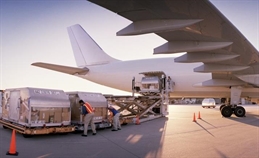
All eyes will be on air cargo performance, according to a new commentary from HSBC Global Freight Monitor, as ocean peak season disappoints.
In a brief statement, the report noted that air freight is at its lowest level since the pandemic, with the Baltic Air Freight Index declining 39% year-to-date (YTD) and is now at its lowest level since March 2020.
This is, however, still 27% above the 2019 level.
HSBC analysts said air freight rates in Hong Kong/China outbound routes remain relatively elevated courtesy of lower passenger capacity in US routes, and the Russia-Ukraine war keeps north-east Asian route airfreight rates higher.
"Air freight rates likely to be supported by new tech product launches," the report said.
"Despite the unexciting demand picture and air freight overcapacity, we think the launch of new tech products such as iPhone 15 in mid-Sept could boost air cargo shipments in late 3Q23 to 4Q23, coinciding with traditional 4Q peak season for air cargo," it added.
HSBC noted that besides that, the continued improvement in e-commerce demand out of China could also help tighten up outbound cargo space from Asia.
Citing DHL, analysts noted that air cargo volumes fell 4% year-on-year in August amid fluctuating manufacturing output but continued to pick up in e-commerce.
DHL also noted that global air freight capacity grew 12% y-o-y in August driven by 19% y-o-y growth in passenger aircraft belly capacity.
In terms of shipping rates, the HSBC Global Freight Monitor said the Shanghai Containerised Freight Index (SCFI) decreased 3.3% week-on-week, down three weeks in a row but still 10% above the YTD trough in early March, driven by improving volumes and capacity discipline.
It added that tanker rates eroded sharply, with VLCC TCE earnings in the Middle East Gulf to Mainland China route slipping below US$5,000/day, likely on the unexpected extension of oil cuts from Saudi Arabia and Russia for another three months.
Meanwhile, it said that BDI increased 5% week-on-week to a two-weeks high, propelled by 9% higher Capesize and 10% higher Supramax rates.



